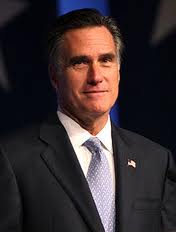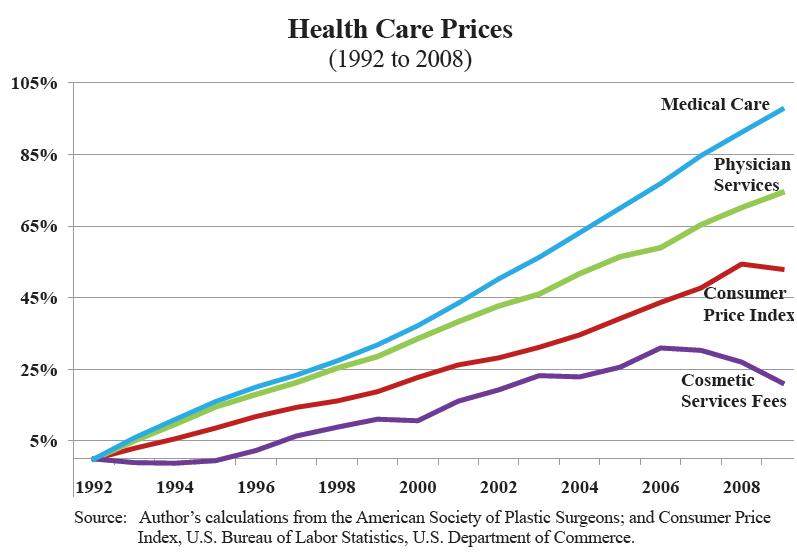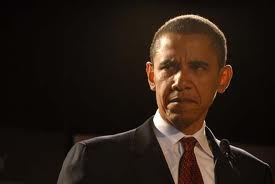
Obama is taking a lot of heat for his comments in Virgina. It was in that speech that he made the now infamous, “If you have a business, you didn’t build that.” The republicans are going crazy with the clip, using it in every ad they can put on TV or the radio. They’ve got it on Facebook and Twitter. Obama saying that business owners didn’t build “that.”
And the left is going nuts over context.
First, I’ve always said that the remark IS out of context. The president clearly was referring to roads and bridges when he mentioned “that.”
Second, this is politics. These same people who are now fainting over context were no where to be seen when Romney was quoted as saying, “I like to fire people.” No one was complaining about context when Romney’s comments on self-check out lines was doctored. It is what it is.
Third, and this is the biggie for me, Obama BELIEVES the message that the republicans are pushing in the out of context quote. Two months ago, if you were to ask Obama if he felt that businesses were built by their owners or with help from the government, he’d tell you that of COURSE it was built with the help of the government. Heck, he’s saying that in the speech.
So, here are his remarks:
THE PRESIDENT: Well, first of all, like I said, the only way you can pay for that — if you’re actually saying you’re bringing down the deficit — is to cut transportation, cut education, cut basic research, voucherize Medicare, and you’re still going to end up having to raise taxes on middle-class families to pay for this $5 trillion tax cut. That’s not a deficit reduction plan. That’s a deficit expansion plan.
I’ve got a different idea. I do believe we can cut — we’ve already made a trillion dollars’ worth of cuts. We can make some more cuts in programs that don’t work, and make government work more efficiently. (Applause.) Not every government program works the way it’s supposed to. And frankly, government can’t solve every problem. If somebody doesn’t want to be helped, government can’t always help them. Parents — we can put more money into schools, but if your kids don’t want to learn it’s hard to teach them. (Applause.)
But you know what, I’m not going to see us gut the investments that grow our economy to give tax breaks to me or Mr. Romney or folks who don’t need them. So I’m going to reduce the deficit in a balanced way. We’ve already made a trillion dollars’ worth of cuts. We can make another trillion or trillion-two, and what we then do is ask for the wealthy to pay a little bit more. (Applause.) And, by the way, we’ve tried that before — a guy named Bill Clinton did it. We created 23 million new jobs, turned a deficit into a surplus, and rich people did just fine. We created a lot of millionaires.
There are a lot of wealthy, successful Americans who agree with me — because they want to give something back. They know they didn’t — look, if you’ve been successful, you didn’t get there on your own. You didn’t get there on your own. I’m always struck by people who think, well, it must be because I was just so smart. There are a lot of smart people out there. It must be because I worked harder than everybody else. Let me tell you something — there are a whole bunch of hardworking people out there. (Applause.)
If you were successful, somebody along the line gave you some help. There was a great teacher somewhere in your life. Somebody helped to create this unbelievable American system that we have that allowed you to thrive. Somebody invested in roads and bridges. If you’ve got a business — you didn’t build that. Somebody else made that happen. The Internet didn’t get invented on its own. Government research created the Internet so that all the companies could make money off the Internet.
And now, finally, the press is getting around to going after Romney over the context of the quote that he’s using. And his response? Just like I’ve been saying.
LARRY KUDLOW: “Why do you think President Obama, what did he mean, if you’ve got a business, you didn’t build it, someone else made that happen? He claims it’s being taken out of context. What do you think it means? Do you think this is Obama anti-business, anti-entrepreneur? Or do you think maybe he has been treated unfairly?”
GOV. ROMNEY: “Well, just read the whole speech. I found the speech even more disconcerting than just that particular line. The context is worse than the quote. The context, he says, you know, you think you’ve been successful because you’re smart, but he says a lot of people are smart. You think you’ve been successful because you work hard, a lot of people work hard. This is an ideology which says hey, we’re all the same here, we ought to take from all and give to one another and that achievement, individual initiative and risk-taking and success are not to be rewarded as they have in the past. It’s a very strange and in some respects foreign to the American experience type of philosophy. We have always been a nation that has celebrated success of various kinds. The kid that gets the honor roll, the individual worker that gets a promotion, the person that gets a better job. And in fact, the person that builds a business. And by the way, if you have a business and you started it, you did build it. And you deserve credit for that. It was not built for you by government. And by the way, we pay for government. Government doesn’t come free. The people who begin enterprises, the people who work in enterprises, they’re the ones paying for government. So his whole philosophy is an upside-down philosophy that does not comport with the American experience. And if we want to get people working again–and that’s my priority–if we want to get people working again, we have to celebrate success and achievement and not demonize it and denigrate the people who have worked hard, who are smart, who have made the kinds of investments to build a brighter future.”
The context of the quote is worse than the quote. Obama’s using the success of the business owner as a lever to force him to pay more taxes. And he hides behind “they wanna give something back.”










